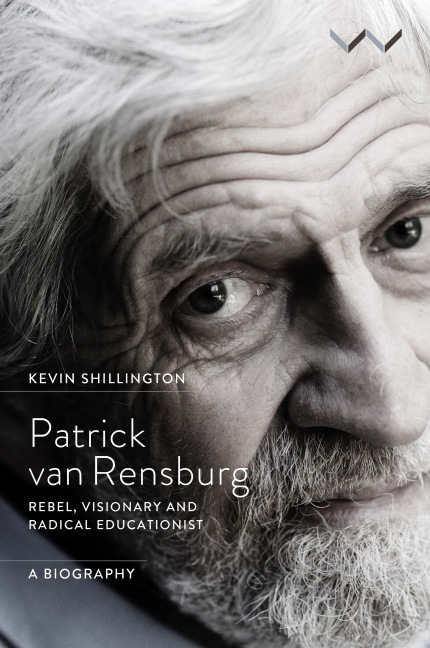Book contents
- Frontmatter
- Dedication
- Contents
- Acknowledgements
- Abbreviations and Acronyms
- List of Illustrations
- Maps
- Introduction
- 1 Origins and Identity in South Africa
- 2 An Anglophone South African, 1936–1948
- 3 The Making of an Afrikaner, 1949–1953
- 4 Diplomat and Rebel, 1953–1957
- 5 Anti-Apartheid Activist, 1957–1959
- 6 Boycott, 1959–1960
- 7 Into Exile, 1960–1961
- 8 Return to Africa, 1961–1962
- 9 The Founding of Swaneng Hill School, 1962–1963
- 10 Challenging ‘The Ladder to Privilege’, 1963–1965
- 11 The Alternative Educationist, 1965–1967
- 12 Expansion and Replication, 1967–1969
- 13 Time of Crisis, 1969–1971
- 14 Education with Production, the 1970s
- 15 Foundation for Education with Production and Spreading the Word, the 1980s
- 16 Education with Production and South Africa, the 1990s
- 17 Return to Botswana
- Epilogue
- Notes
- Bibliography
- Index
1 - Origins and Identity in South Africa
Published online by Cambridge University Press: 10 September 2020
- Frontmatter
- Dedication
- Contents
- Acknowledgements
- Abbreviations and Acronyms
- List of Illustrations
- Maps
- Introduction
- 1 Origins and Identity in South Africa
- 2 An Anglophone South African, 1936–1948
- 3 The Making of an Afrikaner, 1949–1953
- 4 Diplomat and Rebel, 1953–1957
- 5 Anti-Apartheid Activist, 1957–1959
- 6 Boycott, 1959–1960
- 7 Into Exile, 1960–1961
- 8 Return to Africa, 1961–1962
- 9 The Founding of Swaneng Hill School, 1962–1963
- 10 Challenging ‘The Ladder to Privilege’, 1963–1965
- 11 The Alternative Educationist, 1965–1967
- 12 Expansion and Replication, 1967–1969
- 13 Time of Crisis, 1969–1971
- 14 Education with Production, the 1970s
- 15 Foundation for Education with Production and Spreading the Word, the 1980s
- 16 Education with Production and South Africa, the 1990s
- 17 Return to Botswana
- Epilogue
- Notes
- Bibliography
- Index
Summary
On a hot and humid South African summer's day in January 1949, one month after his seventeenth birthday, Patrick van Rensburg realised for the first time that he was officially an Afrikaner.
Born in the commercial port of Durban on 3 December 1931, he had been brought up by his maternal grandmother as an English speaker in the historically Anglophile province of Natal (today's KwaZulu-Natal). The only surname he had known, and under which he had been schooled, was his grandmother's married name, Lagesse, and hitherto he had not questioned his parentage. But now, in the process of applying for his first job, he had acquired a copy of his birth certificate.
There, alongside the date and place of his birth, was the surname of his father, Henry Francis van Rensburg. Patrick was, by birth, a Van Rensburg. He had known that his maternal grandmother was an anglicised Afrikaner. Now, with this revelation, there could be no doubt: he was himself an Afrikaner.
Formerly known as ‘Boers’ (Dutch for ‘farmers’), the Afrikaners were descendants of former employees of the Dutch East India Company and others who had settled in the Cape from the mid-seventeenth century. During the following century and a half, while some of these colonists established wheat, fruit and wine farms near the Cape, others expanded their pastoral and hunting settlements far to the north and east, largely at the expense of indigenous South Africans who were attempting to pursue a similar pastoral/hunting existence.
Afrikaans emerged out of the oral taal (language) of the semi-literate early settlers and their slaves and bonded servants. The appellation ‘Afrikaner’ came later: a badge of cultural distinction in the late nineteenth century. In particular, it distinguished them from the British, who had occupied the Cape in 1806. From the mid-1830s many of the Eastern Cape Boers trekked north to found independent republics on the Highveld. Against the background of their joint oppression of the black African majority, rivalry between ‘Boer and Briton’ led to two wars in the late nineteenth century and an uneasy peace and union in 1910.
Thus, within the context of the racial identities and hierarchies of South Africa, Patrick's discovery that January day was hugely significant, made all the more so by the victory just eight months previously of the Afrikaner National Party (NP) in the South African general election of May 1948.
- Type
- Chapter
- Information
- Patrick van RensburgRebel, Visionary and Radical Educationist, a Biography, pp. 7 - 14Publisher: Wits University PressPrint publication year: 2020



